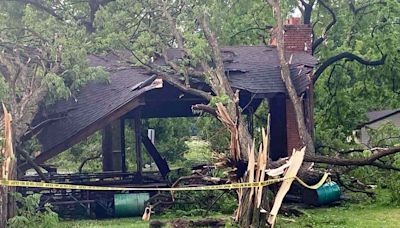Search results
- DictionaryTrag·e·dy/ˈtrajədē/
noun
- 1. an event causing great suffering, destruction, and distress, such as a serious accident, crime, or natural catastrophe: "a tragedy that killed 95 people"
- 2. a play dealing with tragic events and having an unhappy ending, especially one concerning the downfall of the main character: "Shakespeare's tragedies"
People also ask
What is a tragedy based on?
What is a tragedy in literature?
What does Tragédia mean?
What does tragedy mean in ancient Greece?
Tragedy (from the Greek: τραγῳδία, tragōidia) is a genre of drama based on human suffering and, mainly, the terrible or sorrowful events that befall a main character. Traditionally, the intention of tragedy is to invoke an accompanying catharsis, or a "pain [that] awakens pleasure,” for the audience.
Tragedy, which is envisaged from this perspective not merely as a dramatic or literary genre but as a “total social fact,” explores an ethical (which is also to say a social, political, and religious) “border zone” in a “universe of conflict.” 30 Its worldview is not dogmatic but problematizing.
Tragedy definition: a lamentable, dreadful, or fatal event or affair; calamity; disaster. See examples of TRAGEDY used in a sentence.
Apr 21, 2024 · Tragedy underscores the vulnerability of humanity, our susceptibility to failure, and the inevitable suffering that comes with existence. It serves as a mirror reflecting the harsh realities of life, while simultaneously exploring profound themes of morality, responsibility, and the human condition.
But Aristotle died over 2000 years ago, and the definition, purpose, and focus of tragedy has changed a bit in that time. In ancient Greece, tragedy was a ritual performance of the downfall of a great man – usually a king or a nobleman – brought low because of some sort of fault.
TRAGEDY definition: 1. an event or situation that is very sad, often involving death: 2. a play with a sad end: . Learn more.
May 29, 2024 · a serious play or drama typically dealing with the problems of a central character, leading to an unhappy or disastrous ending brought on, as in ancient drama, by fate and a tragic flaw in this character, or, in modern drama, usually by moral weakness, psychological maladjustment, or social pressures.




